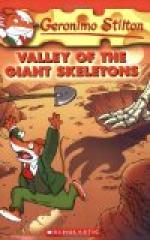“I understand more than you give me credit for, and some day you’ll realize it. I understand just enough to make me feel sorry for you. I understand what even my uncle doesn’t suspect at present, and that is that you’re the directing genius of the Northern California Oregon Railroad and hiding behind your friend Ogilvy. Now, listen to me, Bryce Cardigan: You’re never going to build that road. Do you understand?”
The suddenness of her attack amazed him to such an extent that he did not take the trouble to contradict her. Instead he blurted out, angrily and defiantly: “I’ll build that road if it costs me my life— if it costs me you. Understand! I’m in this fight to win.”
“You will not build that road,” she reiterated.
“Why?”
“Because I shall not permit you to. I have some financial interest in the Laguna Grande Lumber Company, and it is not to that financial interest that you should build the N.C.O.”
“How did you find out I was behind Ogilvy?”
“Intuition. Then I accused you of it, and you admitted it.”
“I suppose you’re going to tell your uncle now,” he retorted witheringly.
“On the contrary, I am not. I greatly fear I was born with a touch of sporting blood, Mr. Cardigan, so I’m going to let you two fight until you’re exhausted, and then I’m going to step in and decide the issue. You can save money by surrendering now. I hold the whip hand.”
“I prefer to fight. With your permission this bout will go to a knockout.” “I’m not so certain I do not like you all the more for that decision. And if it will comfort you the least bit, you have my word of honour that I shall not reveal to my uncle the identity of the man behind the N. C. O. I’m not a tattletale, you know, and moreover I have a great curiosity to get to the end of the story. The fact is, both you and Uncle Seth annoy me exceedingly. How lovely everything would have been if you two hadn’t started this feud and forced upon me the task of trying to be fair and impartial to you both.”
“Can you remain fair and impartial?”
“I think I can—even up to the point of deciding whether or not you are going to build that road. Then I shall act independently of you both. Forgive my slang, but—I’m going to hand you each a poke then.”
“Shirley,” he told her earnestly, “listen carefully to what I am about to say: I love you. I’ve loved you from the day I first met you. I shall always love you; and when I get around to it, I’m going to ask you to marry me. At present, however, that is a right I do not possess. However, the day I acquire the right I shall exercise it.”
“And when will that day be?” Very softly, in awesome tones!
“The day I drive the last spike in the N. C. O.”
Fell a silence. Then: “I’m glad, Bryce Cardigan, you’re not a quitter. Good-bye, good luck—and don’t forget my errand.” She hung up and sat at the telephone for a moment, dimpled chin in dimpled hand, her glance wandering through the window and far away across the roofs of the town to where the smoke-stack of Cardigan’s mill cut the sky-line. “How I’d hate you if I could handle you!” she murmured.




